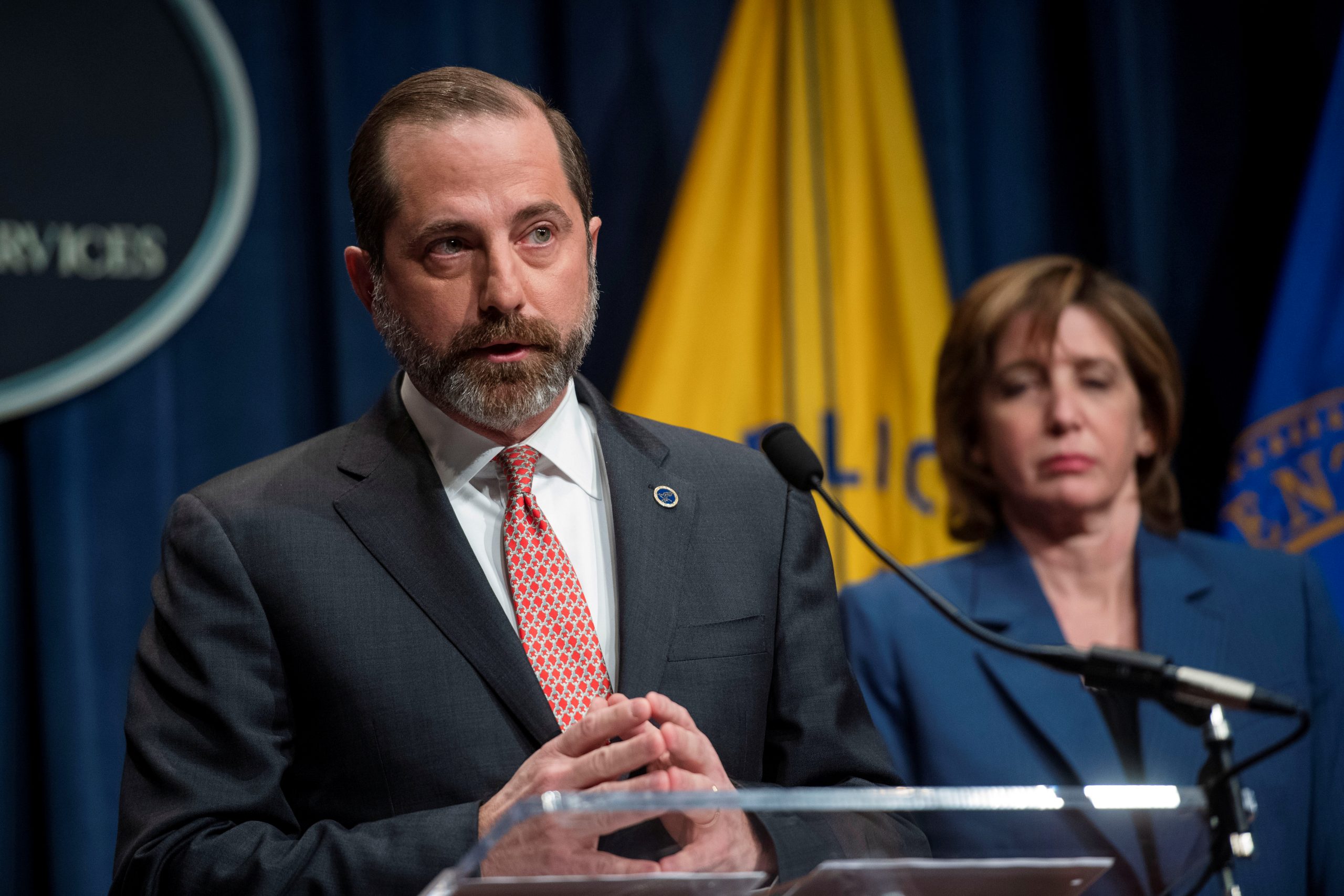The U.S. Centers for Disease Control and Prevention (CDC) on Tuesday alerted Americans to begin preparing for the spread of coronavirus in the United States after infections surfaced in several more countries.
The announcement signaled a change in tone for the Atlanta-based U.S. health agency, which had largely been focused on efforts to stop the virus from entering the country and quarantining individuals traveling from China.
“The data over the past week about the spread in other countries has raised our level of concern and expectation that we are going to have community spread here,” Dr. Nancy Messonnier, the CDC’s head of respiratory diseases, told reporters on a conference call.
What is not known, she said, is when it will arrive and how severe a U.S. outbreak might be. “Disruption to everyday life might be severe” and businesses, schools and families should begin having discussions about the possible impact from the spread of the virus, Messonnier cautioned.
In a teleconference later on Tuesday, Dr. Anne Schuchat, the CDC’s principal deputy director, said that while the immediate risk in the United States was low, the current global situation suggested a pandemic was likely.
“It’s not a question of if. It’s a question of when and how many people will be infected,” Schuchat said.
In San Francisco, California’s fourth-largest city, officials declared a local emergency, despite having no coronavirus cases, in an effort to raise public awareness of the virus’ risks and boost preparedness.
Separately, U.S. Health and Human Services (HHS) Secretary Alex Azar told a Senate subcommittee there will likely be more cases in the United States, and he asked lawmakers to approve $2.5 billion in funding to fight the outbreak after proposing cuts to the department’s budget.
“While the immediate risk to individual members of the American public remains low, there is now community transmission in a number of countries, including outside of Asia, which is deeply concerning,” Azar said, adding that recent outbreaks in Iran and Italy were particularly worrying.
Believed to have originated from illegal wildlife sold in the Chinese city of Wuhan late last year, the new coronavirus has infected some 80,000 people and killed close to 2,700 in China.
Although the World Health Organization says the epidemic has peaked in China, coronavirus cases have surfaced in about 30 other countries, with some three dozen deaths reported, according to a Reuters tally.
Growing outbreaks in Iran, Italy and South Korea have raised concerns that coronavirus will surface in other nations and worsen in those that have already reported infections, further denting a global economy that had already been hit by a dependence on China.
Global and U.S. stock markets fell sharply again on Tuesday, as investors feared the epidemic would further damage an already slowing world economy.
The White House’s top economic adviser, Larry Kudlow, said the U.S. economy would be able to ride out any disruption from the global spread of coronavirus, adding that he did not expect the Federal Reserve to cut interest rates to blunt the disease’s economic impact.
U.S. Senator Chuck Schumer, however, said Republican President Donald Trump and his administration had been caught “flat-footed” and lacked a comprehensive plan to deal with the coronavirus. He called for at least $3.1 billion in additional funding to fight it.
“The Trump administration has shown towering and dangerous incompetence when it comes to the coronavirus,” said Schumer, the Senate’s top Democrat. “Mr. President, you need to get your act together now. This is a crisis.”
Trump defended his administration’s response. “CDC and my Administration are doing a GREAT job of handling Coronavirus, including the very early closing of our borders to certain areas of the world,” Trump said on Twitter.
Dr. Anthony Fauci, the head of the National Institute of Allergy and Infectious Diseases, said it would be at least a year before a coronavirus vaccine could be made available to the public.
But Fauci said testing Gilead Sciences’ <GILD.O> antiviral drug remdesivir for potential treatment of coronavirus could be done in a “reasonable amount of time.”
‘DEADLY CONSEQUENCES’
U.S. Secretary of State Mike Pompeo told reporters that Iran may have covered up information about the spread of coronavirus there, and he accused China of mishandling the epidemic through its “censorship” of media and medical professionals.
“The United States is deeply concerned by information indicating the Iranian regime may have suppressed vital details about the outbreak in that country,” Pompeo told reporters as Iran’s coronavirus death toll rose to 16.
“All nations, including Iran, should tell the truth about the coronavirus and cooperate with international aid organizations,” Pompeo said.
His remarks, coming less than two months after a short-lived U.S.-Iranian military clash and the signing of a U.S.-China trade deal, could inflame tensions with Tehran and Beijing.
Beijing last week revoked the credentials of three Wall Street Journal correspondents over a column China said was racist. The United States has said it was considering a range of responses to their expulsion.
“Expelling our journalists exposes once again the government’s issue that led to SARS and now the coronavirus: namely censorship. It can have deadly consequences,” Pompeo said, referring to the 2002-2003 outbreak of Severe Acute Respiratory Syndrome, which also emerged from China.
“If China permitted its own and foreign journalists and medical personnel to speak and investigate freely, Chinese officials and other nations would have been far better prepared to address the challenge” of coronavirus, he added.
Despite the coronavirus epidemic, Pompeo said the United States still planned to host a special meeting with the 10-member Association of Southeast Asian Nations (ASEAN) in Las Vegas in March.
(Reporting by Julie Steenhuysen in Chicago, Humeyra Pamuk, Richard Cowan, Susan Heavey, Tim Ahmann and Diane Bartz in Washington, Michael Erman in New York and Manas Mishra in Bangalore; Writing by Paul Simao; Editing by Bill Berkrot and Jonathan Oatis)

























 Continue with Google
Continue with Google